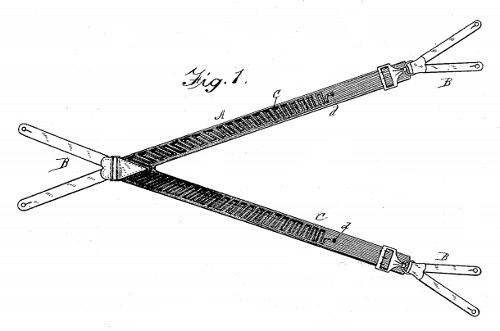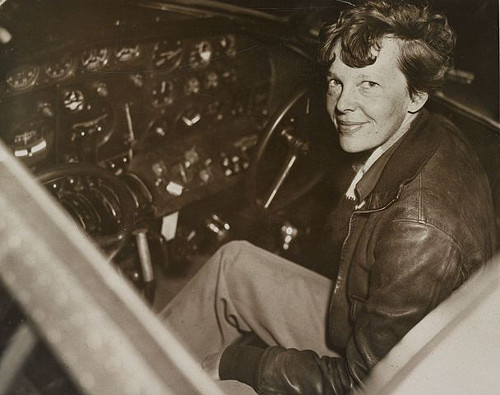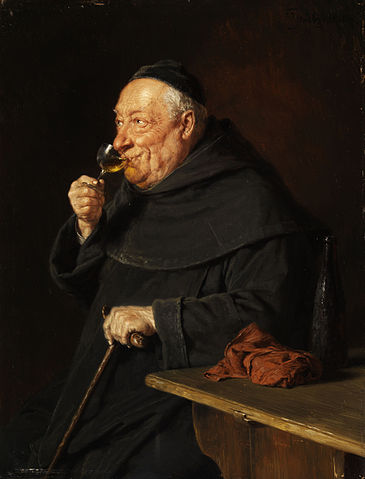
“Civilization is not inherited; it has to be learned and earned by each generation anew; if the transmission should be interrupted for one century, civilization would die, and we should be savages again.” — Will and Ariel Durant

“Civilization is not inherited; it has to be learned and earned by each generation anew; if the transmission should be interrupted for one century, civilization would die, and we should be savages again.” — Will and Ariel Durant
Reviews of a test pattern on Netflix:
Reviews of a gallon of milk on Amazon:
See Beach Reading.

In 1885 George C. Hale had the bright idea of weaving a zigzag cord into a pair of suspenders. Now if the wearer is trapped in a burning building, he can free the cord, lower it from a window to receive a rope, and escape to safety.
Hale’s patent application says, “I have found by experimenting that from fifty to one hundred feet, or even more, of the cord can be secured to the suspender in the manner heretofore described.”
The application was granted. I wonder if he ever went into business with this.
Starting in Delaware, you must tour the 48 contiguous United States, visiting each state exactly once.
Where will you finish?
One afternoon, in mood très gai
Because of paying the gourmet
(I’d taken wine with déjeuner —
A light and lilting Beaujolais —
Plus biscuits, cheese, and pousse-café),
I dared a blazing sun, à pied,
To pay a little visit chez
Miss Janet, who said “You OK?
You may have had a coup de soleil.”
Said I, “I’ve writ a poem, J.,
With no last letter twice in play
And yet the whole thing rhymes with a.”
— Willard R. Espy
(“The trick would, of course, be impossible without using Anglicized French terms.”)

Amelia Earhart left behind what she called “popping off letters,” to be opened in the event of her death. This one, discovered by her husband and biographer, George Putnam, was addressed to her father:
May 20, 1928
Dearest Dad:
Hooray for the last grand adventure! I wish I had won, but it was worth while anyway. You know that.
I have no faith we’ll meet anywhere again, but I wish we might.
Anyway, good-by and good luck to you.
Affectionately, your doter,
Mill
Another, addressed to her mother, read simply, “Even though I have lost, the adventure was worth while. Our family tends to be too secure. My life has really been very happy, and I don’t mind contemplating its end in the midst of it.”

Satirists must make difficult masters. Jonathan Swift spent 28 years amassing grievances about his servants and published them in a sarcastic list in 1731:
Samuel Johnson remarked that Swift must have taken copious notes, “for such a number of particulars could never have been assembled by the power of recollection.”

abbey-lubber
n. a monk living in idleness and self-indulgence
During China’s Han dynasty, artisans began casting solid bronze mirrors with a perplexing property. The front of each mirror was a polished, reflective surface, and the back featured a design that had been cast into the bronze. But if light were cast from the mirrored side onto a wall, the design would appear there as if by magic.
The mirrors first came to the attention of the West in the early 19th century, and their secret eluded investigators for 100 years until British physicist William Bragg worked it out in 1932. Each mirror had been cast flat with the design on the reverse side, giving the disk a varying thickness. As the front was polished to produce a convex mirror, the thinner parts of the disk bulged outward slightly. These imperfections are invisible to direct inspection; as Bragg wrote, “Only the magnifying effect of reflection makes them plain.”
Joseph Needham, the historian of ancient Chinese science, calls this “the first step on the road to knowledge about the minute structure of metal surfaces.”